RIAMAR, with 58 years of history, dispenses, for many, presentations in the area of boat building in Portugal.
Founded in 1964 by the visionary Manuel Alves Barbosa, it was thanks to a series of happy coincidences in his life that made this Brand possible.
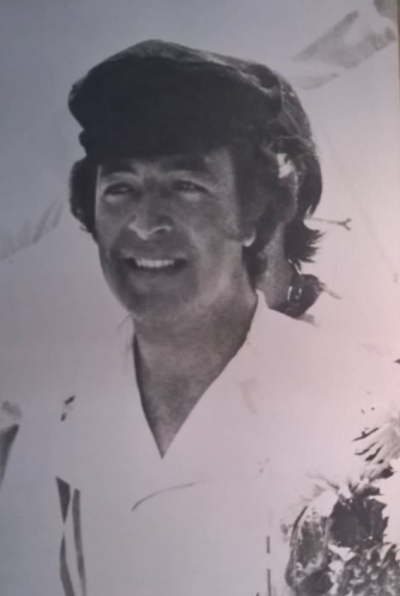
Born in 1930 in Águeda, in a family with strong connections to the automotive sector, Manuel Alves Barbosa had a great passion for cars, including competition, having been involved in the creation of the first exclusively Portuguese car, the “ALBA”, without any personal or professional connection with nautic.
When he did his military service in Aveiro, where he met his wife and got married, he got to know several enthusiasts of an emerging sport in the city at the time, Powerboat Racing.
At the business level, he emancipated himself from his family, continuing to be linked to the automotive sector, on his own, in Aveiro. His passion for competition kept him connected to Powerboat Racing.
He became European Powerboat Racing Champion of the EU Class, premier class at the time, in the years 1961 and 1962.
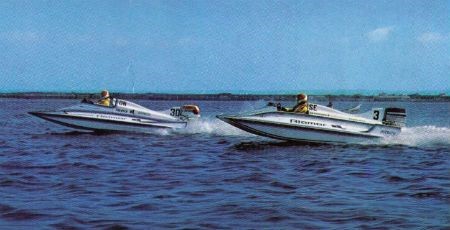
He was already a reference at the time, at the European level in this sport, when he was invited, in 1964, along with a Portuguese delegation, by the King of Morocco, to a powerboat competition in that country. There he had his first contact with a prototype of a vessel that would come to define his life and his legacy.
The prototype, presented by a Spanish enthusiast, Salvatore Sciacca, was a motor recreational boat built entirely in fiberglass, a material very little known at the time, especially in the nautical industry.
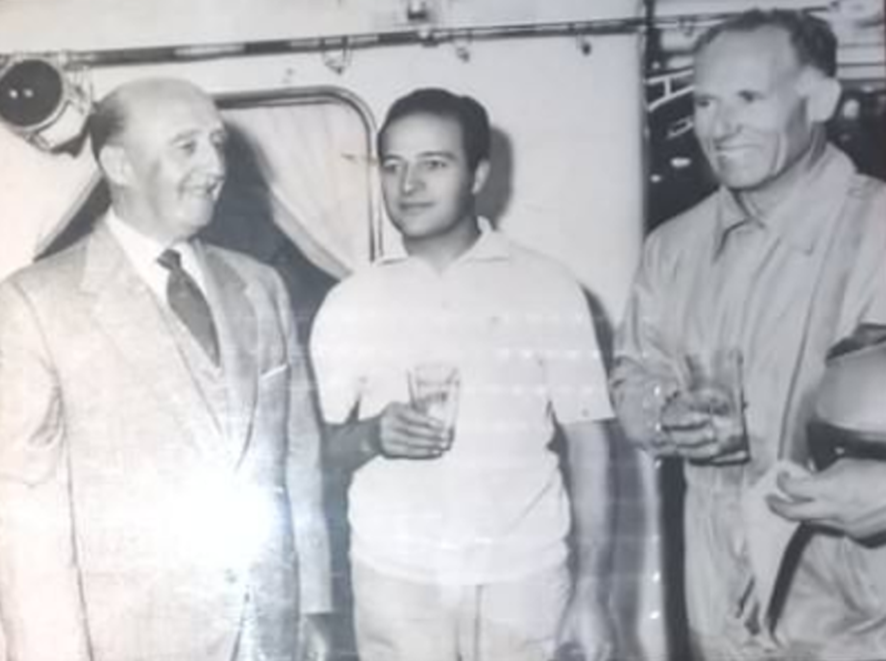
Fascinated by the technology and potential of this new method of boat building, highly resistant, maintenance-free and with an unparalleled versatility of innovation and mass production, Manuel Alves Barbosa started the negotiations that culminated in the creation of the Barbosa e Sciacca, Lda., in Aveiro, the first Portuguese shipyard to produce fiberglass boats and one of the first in Europe, founding RIAMAR – Ducauto brand.
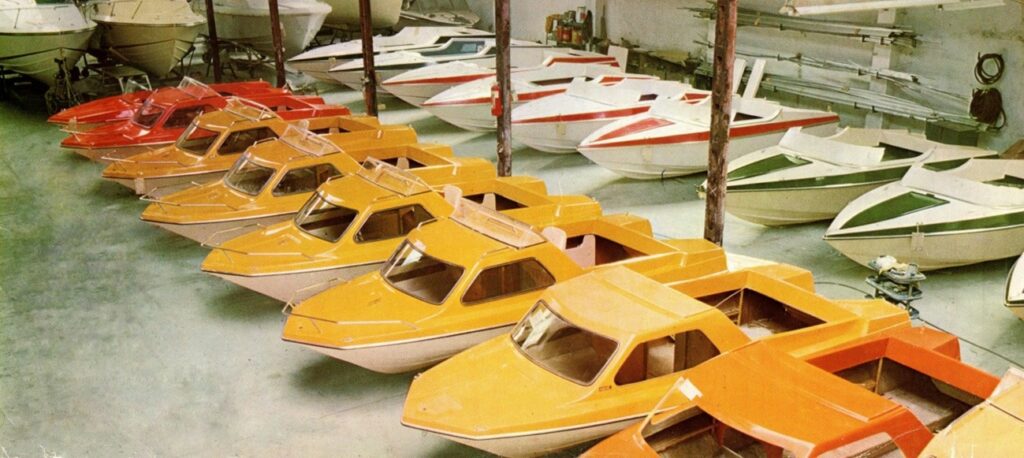

Having as its first model that prototype, later commercially called “Acapulco”, together with the industrial and commercial vision of Manuel Alves Barbosa, the shipyard started its production with the aim of establishing itself not only in the national market, but also export to the Portuguese colonies at the time and to the Spanish market.
At the end of the 60s, RIAMAR, together with the well-known caravan company Vimara, created the first exhibition in the sector, uniting nautical and camping in the Pavilion of Nautical Diversion / Espelho d´Água Restaurant, in Belém, which would later take to the foundation by the same companies in the FIL of NAUTICAMPO, a reference for recreational boating, having held its 51st edition in 2020.
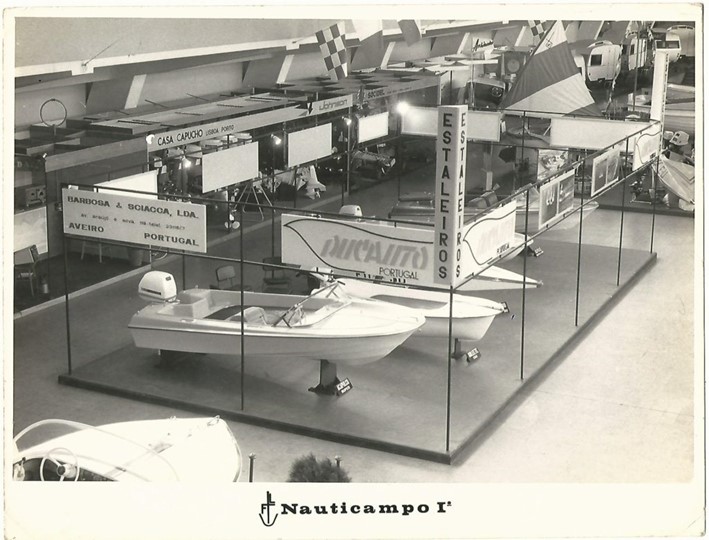
At the beginning of the 70s, the company dissolved, leaving Manuel Alves Barbosa with full control of the company. The consolidation of the company and the brand was achieved through the recognition of the advantages of fiberglass, the quality of construction and the creation of new models adapted to the needs of the market, with the almost exclusive domain of the national market and the Portuguese colonies at the time, maintaining, however, a strong export ratio, mainly to the Spanish and German markets, having even participated on several occasions in the emblematic Boot Dusseldorf show – Dusseldorf Nautical Show, which is still considered the European reference show.
During this period, as a powerboat pilot, a highly mediatized sport at the time, he used his competition team to promote the brand’s name, both nationally and internationally, giving a considerable boost to its growth.
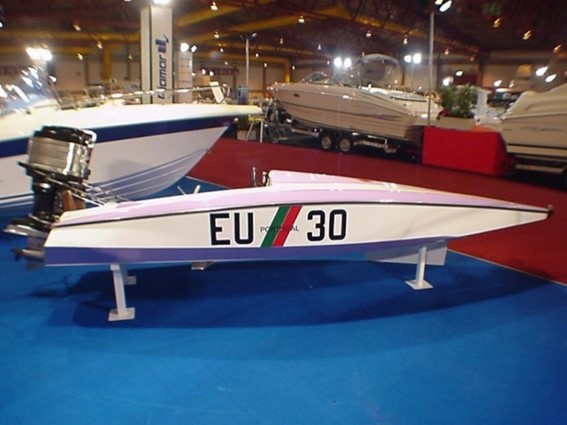
With the revolution of April 1974, the company had its biggest setback. Pleasure boats came to be considered a luxury good, the classes with greater economic power began to be harassed, the colonial war intensified as well as the difficulty in exporting goods of this nature, leading to a drop, almost entirely, in sales.
However, RIAMAR reinvented itself to withstand the crisis, producing other products such as rubbish bins and kiosks, never laying off any employee, while continuing to produce stock vessels at a similar pace, believing that the country would stabilize and would have product ready to offer at that time.
Stability took a while to come and it was in 1976 that Manuel Alves Barbosa, with the company’s commercial director, Carlos Mendes, managed to cross the border, in a truck loaded with boats, claiming they were used. They traveled around Europe in search of nautical companies interested in their boats, staying in different places for sale and marketing. That way, a network of agents was built in Europe, spread across Spain, France, Belgium, Holland, Germany and England.
With the stabilization of the country and the network of external agents created, the company began to grow again. With a finished product for immediate delivery, it rebuilt the network of national agents, while some competing companies emerged, but without size or product to compete. It was here that RIAMAR returned to dominate the national market, with a stronger export component.
RIAMAR launched a whole new range of models, according to the design standards of the time, installing itself in 3 factories, two in Aveiro and one in Carregado, as well as a nautical store in Lisbon, serving the south, together with the factory in Carregado. With around 120 employees, the company reached its production record of 1,200 boats a year in the late 1980s, never going down from 700 units a year in that decade.
In the mid-1990s, the company once again entered into serious difficulties, almost to the point of collapse. Due to the opening of the national borders and the invasion of the market with French and American ships, through strong agents in Portugal. Added to this was the outdated design of the models and bad management decisions in the company.
Never stopping to produce and already with investing partners, at the end of the 90s, the company was resized and focused on the production of new models, for professional fishing, and on export, mainly to Angola, with recreational boats passing to second plan, exporting around 70% of its production.
In 2012, at serious risk of disappearing permanently, due to the age of Manuel Alves Barbosa and the economic crisis, RIAMAR reinvents itself once again. Manuel Cálão, son-in-law and Francisco Cálão, grandson of the founder, embrace a project with the brand through the creation of the company Nautav, Lda, in 2012.
This company was created with the aim of continuing the brand’s legacy, a little forgotten in the national market and with several gaps to fill, despite having an image of unshakable quality and a history of models with excellent navigability.
Thus began a new journey for the brand until the present day, maintaining some models with complete restructuring, innovating in terms of construction and finishes, as well as in the creation of some new models, in line with current existing technologies in shipbuilding, in fiberglass. Restarting in the midst of the crisis, now installed in a small factory in Ílhavo, the company did a lot of hard work, going through some difficulties, in the recovery of RIAMAR’s name and in the slow reconquest of the national market, as a secure base, while maintaining the existing export market.
By 2016, a strong network of agents was created in Portugal, combined with the existing partnership with the Yamaha outboard engine brand, coinciding with a strong drop in exports, once again implementing RIAMAR as a reference for shipbuilding in Portugal and its quality image in the sector.
Growth, combined with economic recovery, remained strong and, in 2019, the company felt the need to build new facilities, located in Zona Industrial da Mota in Ílhavo. Keeping the existing facilities, now exclusively for the gross production of fiber, the new facilities allowed a considerable increase in production, where the final assembly and finishing of the vessels are carried out.
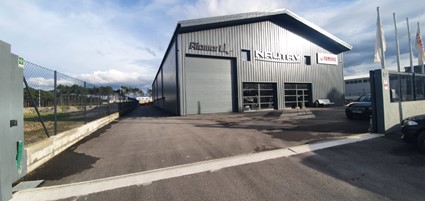
This new unit also made it possible to embrace other projects related to the sector, such as the distribution, in Portugal, of brands such as Flexiteek (world leader in synthetic teak decks) and MonsterTower (wakeboard and ski towers and accessories), among others.
However, the greatest achievement of Nautav, Lda was the strengthening of the manufacturer’s partnership with Yamaha Marine, for the brand’s authorized dealership and service. With a showroom built from scratch, with the visual identity of Yamaha and RIAMAR, and a space dedicated exclusively to authorized service, it allowed the company to embrace a new market for the sale of units, parts, accessories and service for outboard engines and Jet Skis in the country, but also with a strong export component.

The increase in production allowed the company to focus again on foreign markets, having, in 2020, already exported around 50% of the units manufactured.
The creation of a new RIAMAR model is currently under development, in partnership with the Department of Mechanical Engineering and the Design Studio, of the Faculty of Engineering of the University of Porto, a project led by Professor Augusto Barata do Rocha.
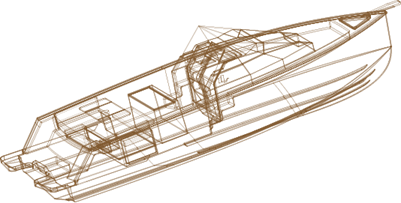
This model, which aims to combine avant-garde lines with the retro design of the first RIAMAR models, combined with the most advanced technology in existing naval construction, both in terms of product quality and reduction of weight and production costs, is expected to be presented in January 2023.
This will be the way to mark the first presence of RIAMAR in the “Boot Dusseldorf – Nautical Show of Dusseldorf, after 50 years.
At the same time, it will help Nautav to strengthen its position in the national market, to return in force to the most demanding markets in Europe and to create a new network of agents in them.
At the age of 92, Manuel Alves Barbosa keeps following the continuity of his work, now in the third generation of the family, with pride and the guarantee that his legacy will last for many years.
RIAMAR is proud of its pioneering past in Europe, is committed in the present with its customers, projecting the future with the highest standards of quality, safety, innovation and loyalty to its customers.
